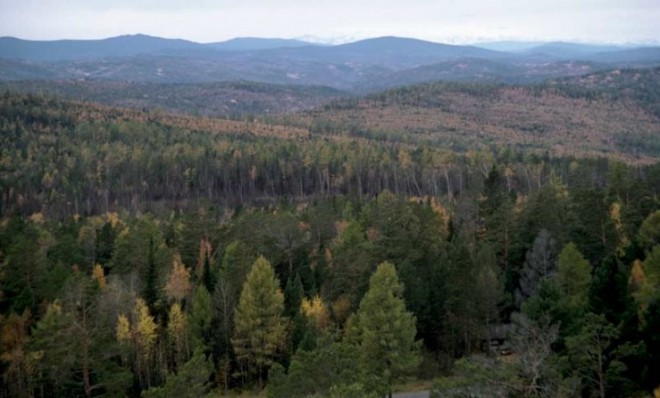The Russian family that lived in isolation for 40 years
Mike Dash at Smithsonian tells the fascinating story of a family that fled to the woods, and stayed there for decades


A free daily email with the biggest news stories of the day – and the best features from TheWeek.com
You are now subscribed
Your newsletter sign-up was successful
In today's world of increasing inter-connectivity, the idea of living off the grid, in the middle of nowhere, with no contact with the outside world is almost inconceivable. We're constantly updated on the lives of our friends, both far and near. We get instant reports on the world's wars and financial woes. And that's why a new article in Smithsonian magazine about a family that lived in isolation for decades is so fascinating. Mike Dash tells the extraordinary story of the Lykovs, a Russian family that — fearing increasingly hostile religious persecution — fled to the Siberian forests in the 1930s and had absolutely zero contact with the rest of the world until they were discovered by geologists in 1978. For 40 years, Karp Lykov, along with his wife and children, lived in a wooden hut just a few miles from the border with Mongolia. Their shoes were made of birch-bark, their clothes from homegrown hemp. When they were found, the family had never heard of World War II, and the youngest children had never seen a person who was not a member of their family. "It's hard to imagine this happening now," writes Jesus Diaz at Gizmodo. Here, a sampling of Dash's report:
The Lykov children knew there were places called cities where humans lived crammed together in tall buildings. They had heard there were countries other than Russia. But such concepts were no more than abstractions to them. Their only reading matter was prayer books and an ancient family Bible. Akulina had used the gospels to teach her children to read and write, using sharpened birch sticks dipped into honeysuckle juice as pen and ink. When Agafia was shown a picture of a horse, she recognized it from her mother's Bible stories. "Look, papa," she exclaimed. "A steed!" ...
The Lykovs lived permanently on the edge of famine. It was not until the late 1950s, when Dmitry reached manhood, that they first trapped animals for their meat and skins. Lacking guns and even bows, they could hunt only by digging traps or pursuing prey across the mountains until the animals collapsed from exhaustion. Dmitry built up astonishing endurance, and could hunt barefoot in winter, sometimes returning to the hut after several days, having slept in the open in 40 degrees of frost, a young elk across his shoulders. More often than not, though, there was no meat, and their diet gradually became more monotonous. Wild animals destroyed their crop of carrots, and Agafia recalled the late 1950s as "the hungry years."
Read the entire story at Smithsonian.
A free daily email with the biggest news stories of the day – and the best features from TheWeek.com
The Week
Escape your echo chamber. Get the facts behind the news, plus analysis from multiple perspectives.

Sign up for The Week's Free Newsletters
From our morning news briefing to a weekly Good News Newsletter, get the best of The Week delivered directly to your inbox.
From our morning news briefing to a weekly Good News Newsletter, get the best of The Week delivered directly to your inbox.
Jessica Hullinger is a writer and former deputy editor of The Week Digital. Originally from the American Midwest, she completed a degree in journalism at Indiana University Bloomington before relocating to New York City, where she pursued a career in media. After joining The Week as an intern in 2010, she served as the title’s audience development manager, senior editor and deputy editor, as well as a regular guest on “The Week Unwrapped” podcast. Her writing has featured in other publications including Popular Science, Fast Company, Fortune, and Self magazine, and she loves covering science and climate-related issues.
-
 How the FCC’s ‘equal time’ rule works
How the FCC’s ‘equal time’ rule worksIn the Spotlight The law is at the heart of the Colbert-CBS conflict
-
 What is the endgame in the DHS shutdown?
What is the endgame in the DHS shutdown?Today’s Big Question Democrats want to rein in ICE’s immigration crackdown
-
 ‘Poor time management isn’t just an inconvenience’
‘Poor time management isn’t just an inconvenience’Instant Opinion Opinion, comment and editorials of the day
